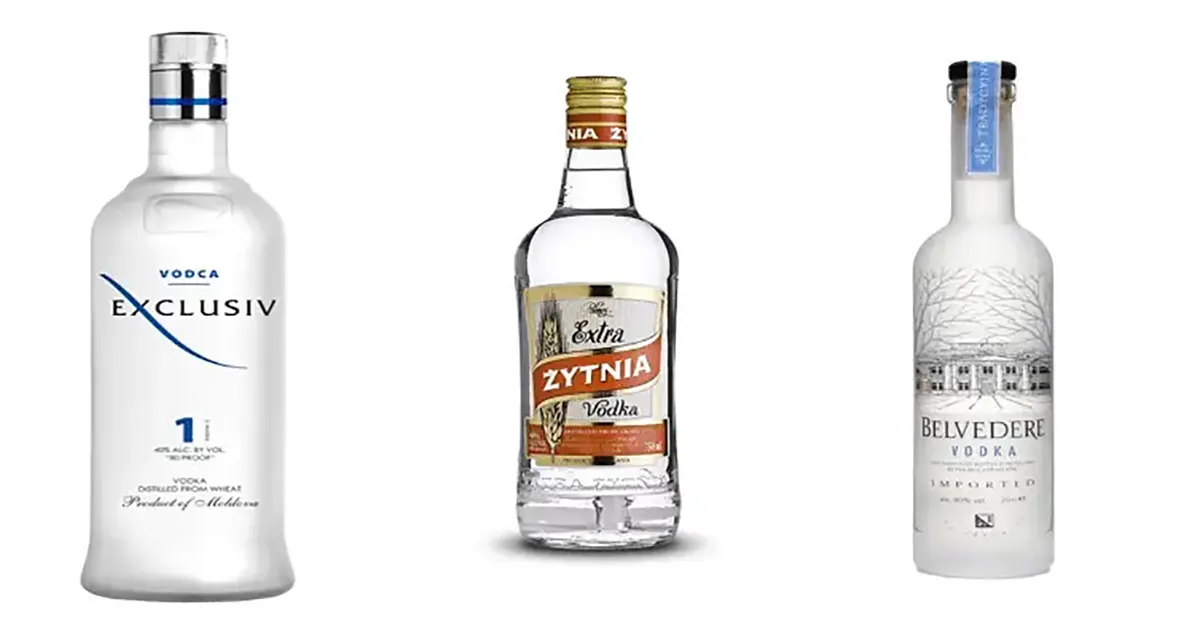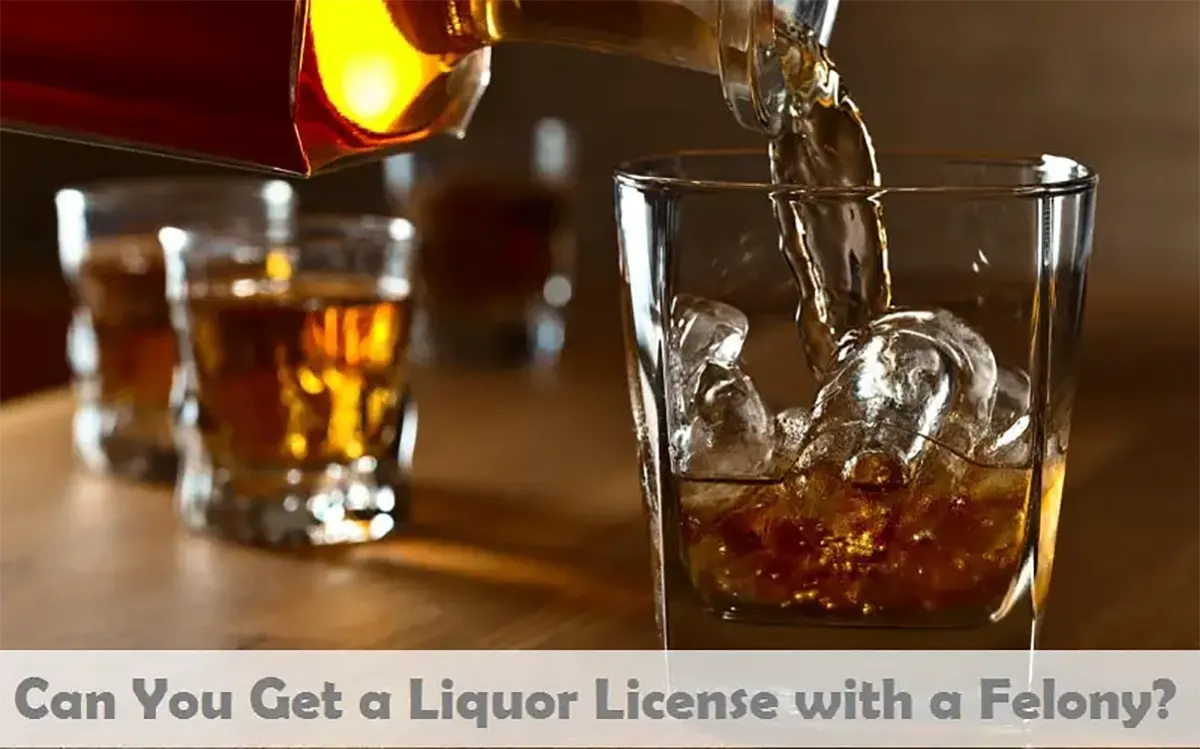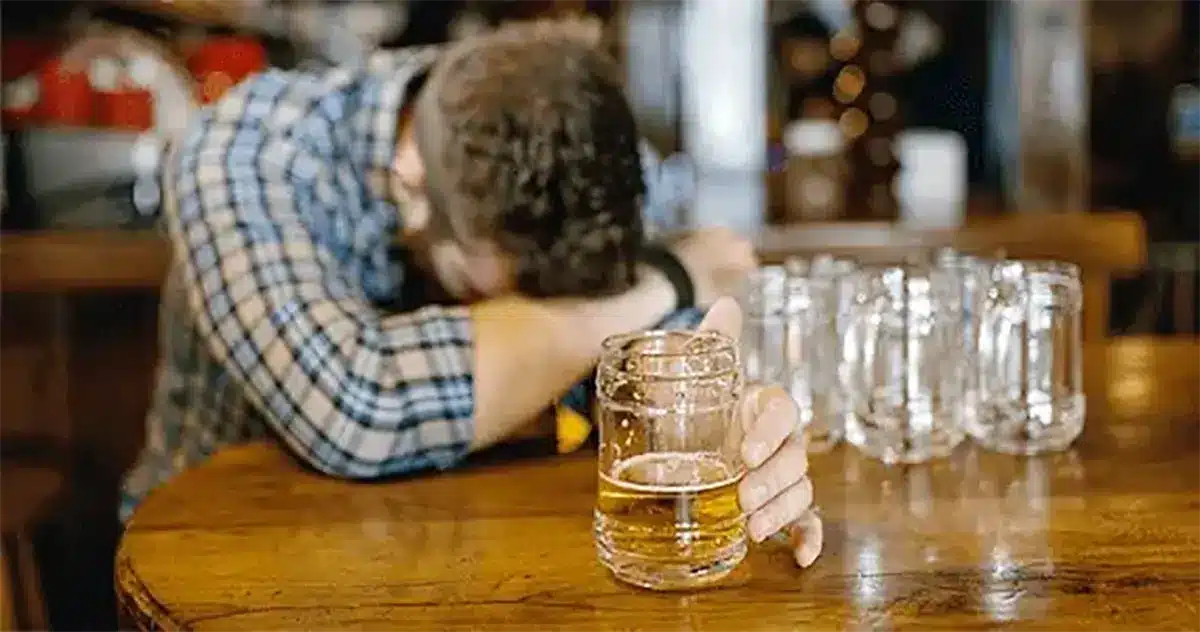Can You Get a Liquor License with a Felony? Who qualifies to get a liquor license is usually decided at either county or even city level, meaning that there are a lot of different answers to this question.
Although having a felony on your criminal record can be an issue for someone wishing to sell alcohol, there are a number of different things that an individual must do before expecting that they would qualify for a license.
The most important point, however, is knowing that having a criminal past, even as a felon, does not automatically bar someone from obtaining a license.
Quick Navigation
The check carried out by liquor bureaus is much more thorough and takes multiple factors into account. We will be exploring what is considered and how best to prepare yourself in order to be successful.
Types of Liquor License

There is a range of liquor licenses that are available to those wishing to obtain one. These can include:
Wholesaler / Supplier licenses – these will allow an individual to sell alcohol to stores, restaurants, and shops.
It is possible that an individual interested in getting into wholesale will have to obtain multiple licenses depending on the type of alcohol that is being sold.
Manufacturer / Brewer licenses – although it is legal to Homebrew up to 100 gallons (0.38 m³) of beer per adult per household per year (up to 200 gallons (0.76 m³)).
If you plan to get into distilling alcohol, a number of requirements and taxes must be accounted for.
Without the license, even owning the distillation equipment can lead to federal criminal penalties.
Special event licenses – licenses can be obtained for parties, celebrations, or any other reasonable temporary situation which would require a license to distribute alcohol. This is not an option for one looking to get into the alcohol business.
On-site sales licenses
The vast majority of liquor licenses obtained fall under the umbrella term ‘on-site sales licenses’, which includes a tavern, beer and wine, restaurant, and club licenses.
If someone was to try to enter the market in these sectors, they should understand that the different licenses relate to the type and the amount of alcohol that is sold on the premises.
For example, even if an establishment was run in a restaurant-style but made half of its money through alcohol sales, it would need to apply for a tavern license.
Additionally, if a business wanted to start selling distilled liquor, they would no longer be able to rely on a beer and wine license.
Understanding the type of license that is necessary for running a business is key to ensuring you are successful in your pursuit of one.
Why do you need a business license?
Business licenses, generally, are necessary for almost all businesses in America.
Liquor licenses for restaurants and bars, for example, will be managed at the state level in some cases, but they can also be dealt with at a county or city level depending on the area.
Search specifically for your area to be sure that you understand what is necessary.
Business licenses are necessary as they help identify a business and help it run at an acceptable level.
To protect the public in terms of health and safety, and make sure that the finances are dealt with appropriately for tax purposes.
Can a felon get a liquor license?

Felons are not automatically refused liquor licenses unlike, for example, firearms licenses.
There are, however, a number of considerations that must be made before awarding a liquor license to a felon, most relating to the nature and time of the crime and how the individual has changed since that time.
Alcohol-based crimes
If someone has a felony against their name which they committed under the influence of alcohol or if they have an alcohol-related felony, these will likely fail to obtain a license.
Example crimes would be a Driving Under the Influence charge (DUI) with a blood alcohol content of 0.16% and above.
If you have a felony on your criminal record that is similar to the above cases, you will likely be denied a liquor license.
Similarly, in the state of Wisconsin, you can be barred from even obtaining a liquor license if you are found to be selling alcohol without a license.
It should also be noted that an individual who has had a license revoked or has been convicted of a law relating to the manufacture or sale of intoxicating liquor cannot usually be granted a license.
The number of convictions
The number and type of convictions will be considered when attempting to obtain a liquor license.
Although, a single DUI or drug offense may not lead to an individual being ruled ineligible.
Many states will rule out those who have made multiple offenses, and especially those who have made multiple offenses within a certain number of the years (generally 5 to 10).
Oregon, specifically, states that DUIs and drug charges will be considered when assessing.
How long ago the crime occurred
States have different guidelines for dealing with how much must pass after a crime before someone is considered eligible to obtain a liquor license.
An example from Milwaukee – if someone is found guilty of selling alcohol to minors or serving “intoxicated patrons” two or more times within the previous three years, they will be unable to obtain a license.
As with any felony charge, if you are capable of expunging the crime from your criminal record, it is an excellent idea to do so. Seek local legal aid and this should improve your chances of obtaining a license.
Disclosing a conviction or attempting to hide it
If you attempt to hide a felony charge against your name when applying for a liquor license, you will be turned down.
Never try to hide your criminal past, but be sure to explain that you have moved on from it. If you fail to inform the relevant authorities about your criminal past, it is likely that this may cause long term problems for you.
Liquor bureaus are searching for those who have good moral character, and if you show yourself as a liar when you are applying, you may fail to convince those who you need to for future applications!
How best to apply for a liquor license as a Felon

When applying for a liquor license as a felon, the liquor bureau receiving your request will want to find out details about any potential crimes and an explanation for your criminal convictions.
This must be honest as they will follow this up with an investigation about the offense which will directly inform if they wish to issue the license.
Additionally, a license holder must be a qualified legal voter, a taxpayer, and a person of good moral character – this can be a rather strange requirement as it does not specify what a person of good moral character is
But presenting yourself (truthfully) as an honest, hardworking, and functioning member of society who wishes to add to it.
How to best improve your chances of success
Primarily, you will want to present your case for obtaining a liquor license by showing that you are a functioning member of society with good morals and character.
You will most likely not be granted a license if you cannot show that or if you have any felony convictions within the past 5 years.
If you have violated state liquor laws within the past 5 years, or have violations of liquor laws within the past 6 months.
Ensuring that you can show that you can follow those rules as well as being an honest, stable, and addiction-free citizen will give you an excellent chance of being awarded a license.
As previously mentioned, the absolute best plan of action for obtaining any type of employment after a felony conviction is to get it expunged from your record.
As soon as you can do so, look into seeking the appropriate legal aid to show that you have left that past behind.
Another simpler method for improving your chances would be to enter into a licensing application with a business partner who has a clean record.
This may require a significant contribution in terms of time from your potential business partner, so be sure to think carefully about whom you ask to help you out.
Also, as the license usually covers the premises, you should not face any issues serving alcohol as long as all rules and requirements set by the liquor bureau are followed.

